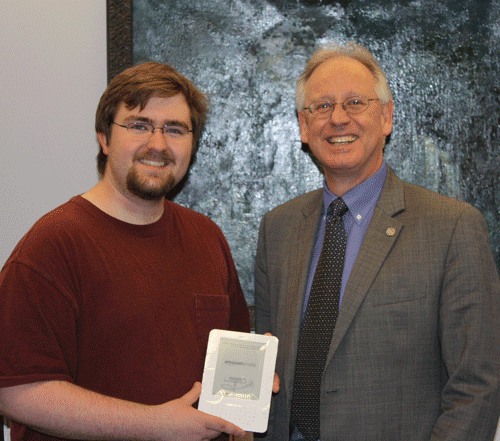In response to Northeastern alumnus Alan Blume’s post in which he asks, “Are the days of the traditional library coming to a close?” I wrote this response.
Alan, thank you for this post on a great topic — libraries serving communities! You bring up many good points that are being thoroughly discussed every day by users and librarians across the country. Your input is important. Libraries are indeed being reinvented at this very moment.
Here are my thoughts.
1. Every library should be shaped by the needs and desires of its primary community of users.
· For some libraries, this may mean going all digital; for others, raising funds and building a larger physical space may be the way to go; and for still others offering physical and digital services may be optimal.
· It may be study or meeting space that some community members want. Others may want services, such as homework assistance, research assistance, cultural programming, or technology training. For still others, access to the latest research findings or historical primary materials may be the top desire.
· At Northeastern, over 1.5 million visitors come into Snell Library every year and at the same time an additional 1.5 million visitors enter our doors online. Because of student demand, beginning this summer, we will be opening the entire library building 24 hours a day.
2. Like all organizations, libraries should operate with sound fiscal management.
· Reallocating resources to meet current user needs is one way of accomplishing this (shedding little-used services and adding others that meet needs). Raising resources through fundraising and for-profit enterprises are other ways. Consortium building to share resources, space, and management is another option. The joint library of San Jose State University and the city of San Jose is an example. Northeastern belongs to the Boston Library Consortium, which shares resources and physical access amongst 20+ libraries and has a joint digitization project through the Open Archives Initiative.
· I wholeheartedly agree with Alan’s comment about his desire to access articles and receive expert assistance from anywhere. However, there is indeed a cost associated — building and offering digital resources and connecting them to other resources and to users is not free. Many libraries, publishers, and information vendors are creating extremely cool information access tools, but there is a cost associated. As Alan noted, copyrighted literature or scholarship is not free. The back-end of information provision is not either.
3. Every library should meet the resource needs of its full range of users, especially those with limited resources.
4. While digitization of materials and online access to information is a high priority, preservation of information is also an important issue, especially with locally held unique materials, special collections, and historical documents.
5. In my view, in addition to meeting the specific needs of their communities, all libraries have an imperative traditional role to uphold, that of being information connectors — connecting people to the information they need. Libraries can accomplish this in innovative, untraditional ways.
